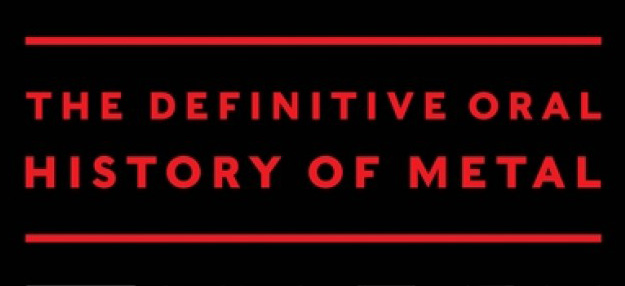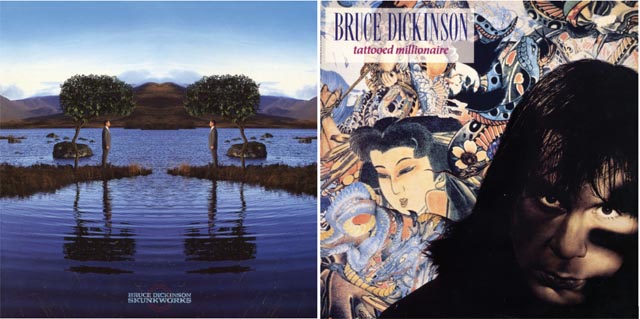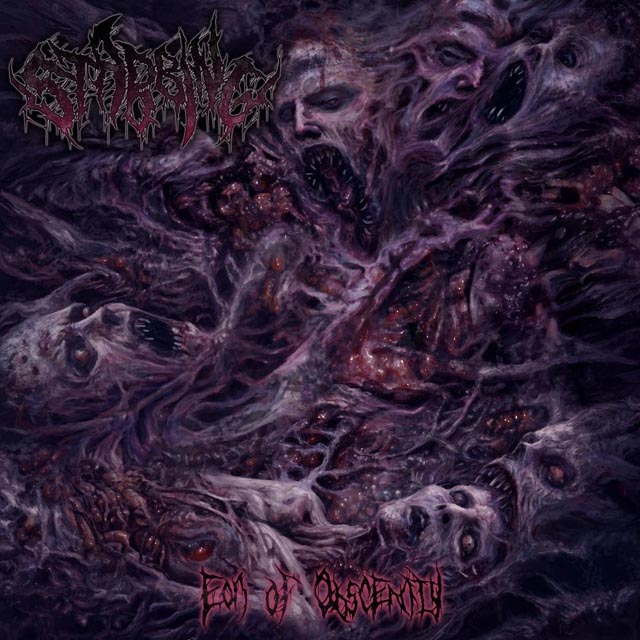 What was the biggest obstacle or obstacles in tackling a whole genre? I mean, that’s a gargantuan task? You could actually beat someone up with the book really.
What was the biggest obstacle or obstacles in tackling a whole genre? I mean, that’s a gargantuan task? You could actually beat someone up with the book really.
Jon: Well you can, and if you’d seen the original version, it’d break your bookshelf. That was the biggest problem, telling the coherent story of metal through the mouths of other people and trying to be as comprehensive as possible. We originally had a book that was almost twice its length. Our original editor, who ran fleeing from the company after we turned in our first draft, at least had a sense of humor and sent us a photograph of the pages we had originally submitted printed out next to a yard stick, and it was about a foot and a half tall. (laughs)
Katherine: It was the size of a Spinal Tap ‘Stonehenge’. That’s how big our book was. (laughs)
Jon: Right. So that was the biggest task, just cutting it all down. And unfortunately we had to lose a whole chapter just to start with and that was a chapter we’d written on grunge. We both are big fans of the sub-genre and feel that it does have a place in metal’s history, but ultimately we felt it was less metal, perhaps, than the chapters we did include.
You mentioned Please Kill Me, are there any other metal or music books you looked up to when going into putting this together?
Katherine: I think it’s funny that there have been so many books in the last couple years. The Dirt is kinda the one that everyone looks to as the watermark, besides Please Kill Me, which is of course a different genre. But I personally tried not to read too many because I might have freaked out and thought, ‘Wow here’s Ozzy’s book and we have the same story.’
Jon: I did that…
Katherine: (laughs) So you freaked yourself out. I didn’t do that too much. Jon, why don’t you tell us what freaked you out.
Jon: What I thought was “We really have to try to be original here”. The Megadeth book is interesting, the Ozzy book is great, The Dirt is unparalleled, the Manson book is great. What are we going to do for people who have read all of this stuff? Our book has a lot of these great stories plus more, and it’s just one book, so if you haven’t read all of those, or even if you have, there’s a lot to like here. I look at Ian Christe’s Sound of the Beast as a great academic history of metal. I think it’s a wonderful book, but that’s not the book I wanted us to write. I felt that we needed to tell the history of metal, but we needed some more about the cultural history and the sociology of metal as well, because there’s a lot of really fascinating stuff that these guys did in terms of sex, drugs, and rock n’ roll.
Katherine: Lords of Chaos is an amazing book, and that gets super specific. We have an amazing chapter on eating brains and killing other singers that I think will satisfy any metal fan.
Jon: There’s more to it than that. We wanted the sensational stuff, but we also wanted the credibility, so there was constantly a fine line of telling the story of metal and forwarding the analysis of the music while at the same time getting the nitty-gritty, crazy, anecdotal stuff in addition to telling the tried and true legends that everybody knows and loves. There’s new stories from the guys in Korn, stories from people in Cannibal Corpse, for instance. Morbid Angel. Even some black metal stories I think that aren’t out there. That was exciting, to be able to bring new legends to the table.













